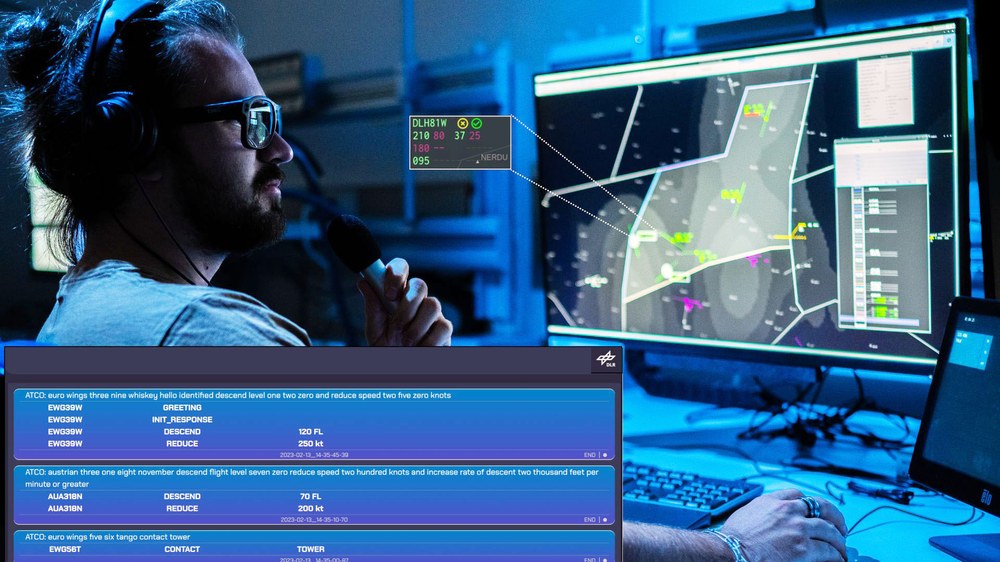Safe use of automatic radiotelephony understanding in air traffic control

- DLR is developing AI-based prototypes for automatic speech recognition in air traffic control in order to reduce the workload of air traffic controllers and increase situational awareness.
- A safety assessment showed that the use of this technology does not pose any additional safety risks to the air traffic controller workstation.
- The research results were published in the scientific journal "Aerospace" and have contributed to the global networking of researchers in this field.
Verbal communication between air traffic controllers and pilots is still one of the main reasons for the high level of safety in our air traffic. However, the current shortage of skilled labour does not stop at air traffic control personnel. As a consequence, this means a higher average workload per air traffic controller if capacity losses, i.e. a reduction in the number of flight movements, are to be avoided.
In the recent past, systems based on artificial intelligence (AI) have experienced an enormous boost. AI-based systems that automatically analyse radio telephony with instructions from controllers and readbacks from pilots can also provide efficient support at the controller's workplace. This initially involves recognising spoken words such as "lufthansa one eight hotel descend flight level eight zero". However, the subsequent extraction of the semantic content, such as "DLH123 DESCEND 80 FL" in this case, is extremely important in order to feed the digital air traffic control systems with details such as the aircraft's call sign, command types and values. This can ultimately be used to realise applications that help air traffic controllers, for example (1) to find flights by visually highlighting them on the radar screen, (2) to maintain flight strip information or (3) to check that the verbal pilot readback of commands is free of errors.
The Controller Assistance department at the DLR Institute of Flight Guidance has been working with international partners for over a decade to develop AI-based prototypes for automatic speech recognition and understanding of radiotelephony in all phases of flight. In many simulation studies with laboratory and real data, it has been demonstrated that the prototype systems can, for example, reduce the workload of controllers and increase situational awareness. The prototypes have now reached a level of technological maturity that makes it possible to transfer the technology directly to industry. This raises the question of safety when AI-supported software for recognising and understanding voice radio is used operationally.
It was precisely this aspect that DLR investigated together with European partners using the example of an approach controller workstation. The safety assessment carried out, which is based on two use cases and eight identified hazardous situations, makes it clear that no additional safety risks are to be expected at the controller's workplace.
The detailed results of the study have now been published under the title "Ensuring Safety for Artificial-Intelligence-Based Automatic Speech Recognition in Air Traffic Control Environment" in the scientific journal "Aerospace". In recognition of this research work and results, the Aerospace journal has also selected the publication from over 60 articles for the cover of its eleventh issue "November 2023".
In addition, the researchers Prof Dr Hartmut Helmke and Dr Oliver Ohneiser are currently guest editors of a special issue of the Aerospace Journal on the topic of "Automatic Speech Recognition and Understanding in Air Traffic Management". Ten scientific articles on the topic of automatic speech recognition and understanding in air traffic management have already been published by authors from all over the world.
"We see DLR as a key driver of this topic," says Dr Ohneiser. "With this special issue, we hope to promote the global networking of researchers in order to bring the prototypes for radiotelephony recognition in air traffic control into operational use as quickly as possible".
